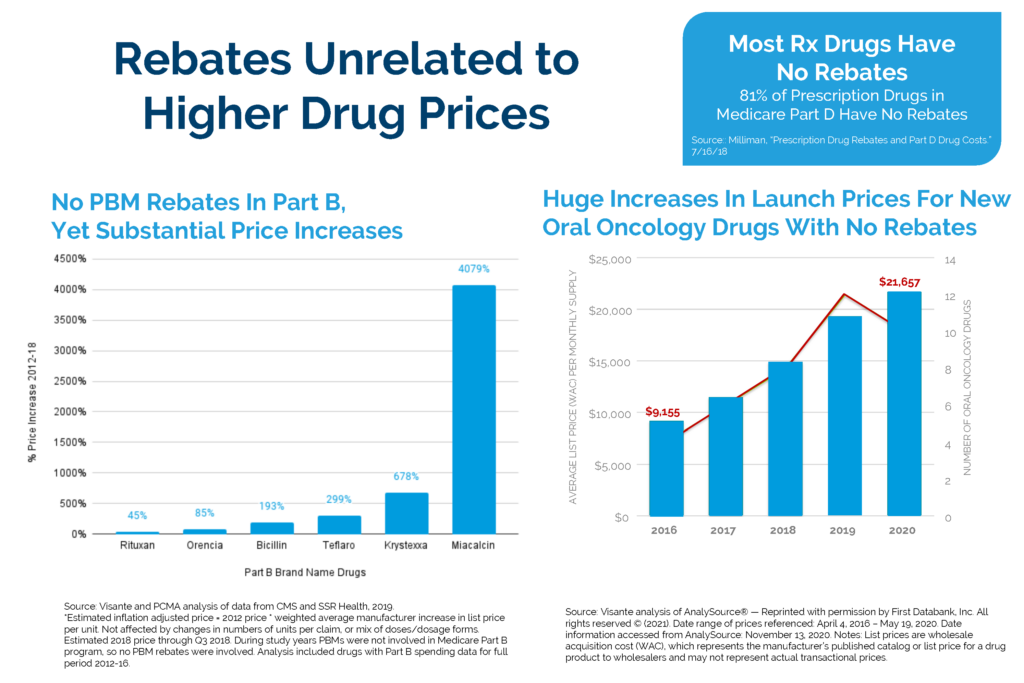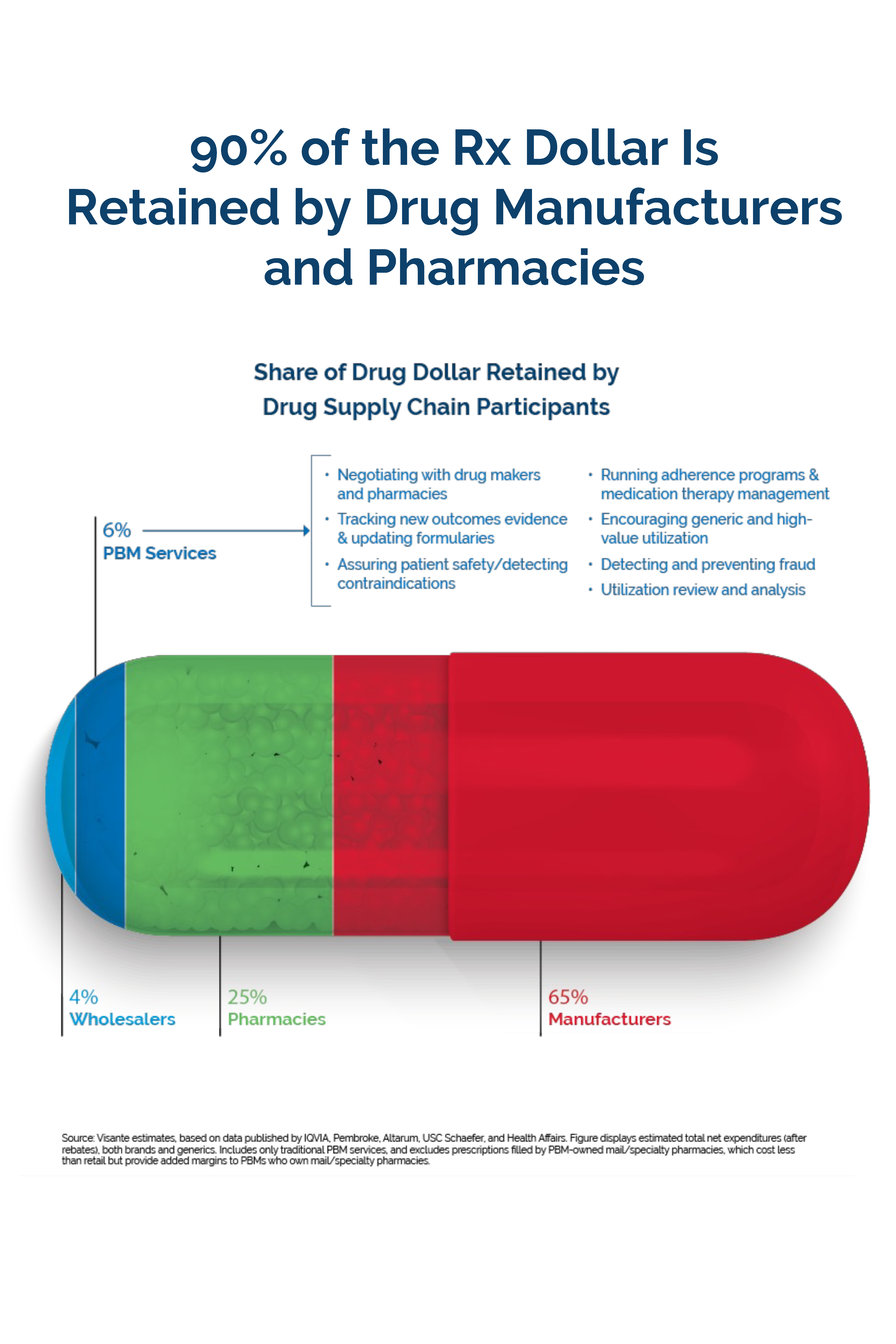Across brand drugs, pharma list prices are 422 percent higher in the U.S. than in other countries.
The list price for a pair of autoinjectors for Dupixent, a biologic used to treat COPD, asthma, and eczema among other conditions, is $3,993 in the U.S. – including a 5 percent increase on January 3, 2025, and is more than twice that of France ($1,453).
The list price for a 30-day supply of Invokana, a drug used to treat Type 2 diabetes and kidney disease, is nearly $600 in the U.S., which is nine times higher than in Canada ($64).
The list price for a 30-day supply of Opsumit, a drug that treats pulmonary arterial hypertension, is nearly $13,000 after a 2.5 percent price increase on January 3, 2025, which is six times higher than in Australia ($1,971).
Of the 356 drugs approved by the FDA between 2010-2019, 99.4 percent included research funded by the National Institutes of Health.



